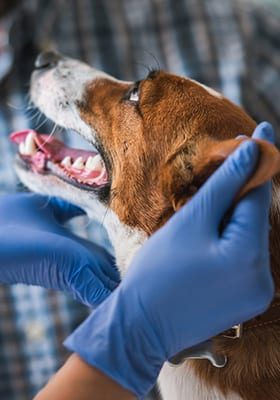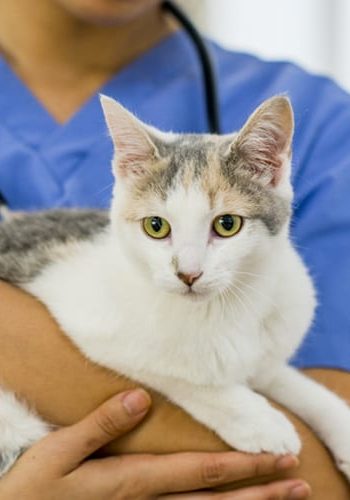Laboratory Services and Blood Work
For Cats and Dogs
Unlike people, our pets can’t tell us when they’re not feeling well; even worse, sometimes they mask their symptoms. This makes your pet’s annual wellness exam and blood tests for dogs and cats all the more important to diagnose and treat underlying health conditions. Catching issues early can help ensure more positive outcomes.
Here at Animal Emergency Center of Sandy Springs, our in-house laboratory can support testing for:
- Serum chemistry
- Hematology
- Serology
- Arterial blood gas
- Urinalysis
- Presence of parasites
- PT & PTT (blood clotting disorder)

Why Does My Pet Need Blood Work?
Blood work helps us identify what’s wrong with your pet and rule out what’s not quickly. It helps us diagnose and treat your pet more effectively, as well as establish baseline health to support your pet’s preventative care with your primary veterinarian.
We run blood work as a precursor to all surgeries to ensure your pet is healthy enough to undergo the procedure and general anesthesia.

Some other common reasons to run blood work on your pet include:
- Fever
- Vomiting
- Diarrhea
- Itching
- Drinking more water than usual
- Notable changes to skin color
- Not eating or drinking for 24 hours
- Losing significant weight or fur
- Uncharacteristic behavior
It is common for pets to develop long-term health conditions as they age like hyperthyroidism in cats and dogs, liver or kidney disease, and diabetes. Running blood work during your pet’s annual wellness exam with your primary veterinarian can help catch issues early and ensure a proper treatment plan is in place.
What Does Blood Work Test for in My Pet?
Blood work includes a complete blood count (CBC) and an analysis of the chemical components in your pet’s blood. It can help us determine hydration levels, immune system health, and the presence of any infections.
Common, critical substances tested for during blood tests for dogs and cats include:
- Glucose
- Electrolytes
- Proteins
- Liver enzymes
- Kidney enzymes
- Digestive enzymes
- Endocrine hormones

If we notice any deficiencies, we will work with you and your primary veterinarian to order further testing.
If you believe your pet is having an emergency, please contact us at (404) 252-7881. If you have additional questions about our hospital’s policies, please visit our FAQs page.
